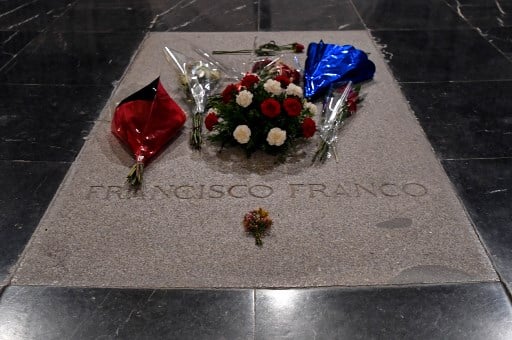Prime Minister Pedro Sanchez's Socialist government has made moving Franco's remains from a basilica at the Valley of the Fallen near Madrid to a more discreet location a priority since it took office in June 2018, arguing the country could not “continue to glorify” the dictator who died in 1975.
It had initially planned to move his remains to a family tomb on June 10 but just days beforehand the Supreme Court suspended the exhumation pending the outcome of an appeal by Franco's heirs.
In addition, an administrative judge in February 2019 had suspended the building permit to begin work to remove the remains from the basilica.
But in a unanimous decision issued last Tuesday, the Supreme Court decided to “completely reject” the appeal lodged by Franco's family.
The court also ruled that no building permit would be needed since the exhumation would not require major works to the site, according to the full text of the ruling which was published Monday.
The operation would “simply involve removing the tombstone, extracting the remains and restoring the original pavement,” it said.
The court still must rule on three other appeals against the planned exhumation but a court spokesman said last week it was “foreseeable” the judges would issue a similar verdict in the remaining three cases.
Franco, who ruled with an iron fist following the end of Spain's 1936-39 civil war, had himself planned the monument and had it built, using the labour of political prisoners.
A huge 150-metre-high (500-feet) cross that can be seen from miles away towers over the site, which also holds the remains of more than 33,000 dead from both sides of the civil war.
The government plans to rebury Franco's remains next to those of his wife in the family tomb at Mingorrubio El Pardo, a state cemetery 20 kilometres north of Madrid where several political figures are buried. No date for the exhumation has been set.
EXPLAINED: Why Spain is on the verge of digging up General Franco



 Please whitelist us to continue reading.
Please whitelist us to continue reading.
Member comments